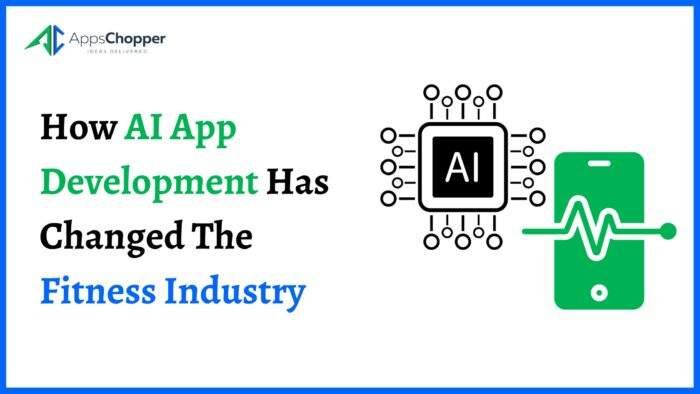How AI App Development Has Changed The Fitness Industry

The integration of Artificial Intelligence (AI) in mobile app development has transformed numerous sectors. Take fitness apps, for example: AI has not only made workouts more effective, but have also added a layer of personalization and convenience to fitness routines.
This technology is evolving to include many more features, although its biggest contribution has been to bring a customized touch to fitness apps. People have really warmed up to these apps because of this, and it is only the beginning.
The Advantages of AI App Development In Fitness
These are some ways in which Artificial Intelligence is enhancing fitness app development and making lives better:
Revolutionizing Personal Training
The one-size-fits-all approach does not work in fitness. AI is helping make things more personalized. Users get tailored workout plans based on their body type, goals, and fitness levels through AI-based features. These AI personal trainers adapt and evolve as you progress, making sure you are always on track and pushing your limits.
Nutrition and Diet Enhancement
AI’s data-driven approach means diet recommendations are no longer just based on general guidelines. They consider an individual’s metabolism, activity levels, and even genetic predispositions. This precision leads to better results and health outcomes.
Enhanced User Engagement
Motivation often wanes after the initial enthusiasm. AI-driven fitness apps keep users engaged with personalized challenges, real-time feedback, and rewards based on their performance and consistency. This gamification of fitness leads to better adherence and results.
Safety and Injury Prevention
Injuries are a significant setback for anyone on a fitness journey. With AI’s capability to analyze form and technique in real-time, many apps now offer instant feedback. This feature helps users correct their posture and form, minimizing injury risks.
Virtual Reality (VR) and Augmented Reality (AR) Workouts
Combining AI with VR and AR has given birth to a unique workout experience. Users can now engage in fitness routines in virtual environments, making workouts more exciting and immersive. Whether it is yoga on a virtual beach or a HIIT session in a futuristic arena, the options are limitless.
Data-Driven Insights and Progress Tracking
AI analyzes vast amounts of data and provides useful perspectives based on that information. Users can track their progress in detail, understand their strengths and areas of improvement, and get recommendations to enhance their performance. This is one of the biggest advantages AI brings to any industry.
Integrating Mental Health
Recognizing that fitness is not just physical, many AI-driven apps now offer meditation, relaxation, and mental exercises. These apps provide personalized mental health exercises, ensuring a holistic approach to health and wellness by analyzing user data.
Examples of AI-Powered Apps in the Fitness Industry
These are some great examples that signify a strong future of this technology in fitness app development:
- MyFitnessPal uses AI to predict and recommend meals and caloric intakes tailored to user profiles. With the integration of AI, users can simply snap a photo of their meal, and the app identifies the food items and automatically logs nutritional information.
- Fitbod leverages AI to create personalized weightlifting plans. By analyzing user performance, it adjusts reps, sets, and weights, ensuring that users always get the optimal resistance training.
- Freeletics offers adaptive workout plans. The app modifies exercises, durations, and intensity based on user feedback and progress. This ensures that the user is consistently challenged without being overwhelmed.
- Calm utilizes AI to tailor meditation sessions according to user preferences and their mental state, gauged from inputs.
- Vi Trainer merges AI with bio-sensing earphones to provide real-time feedback during runs. The AI coach responds to the user’s heart rate, elevation, and speed, guiding them through their exercise.
Conclusion
The integration of AI in the fitness industry is just the beginning. As technology advances, we can expect even more personalized and effective solutions from almost every experienced AI app development company. The horizon looks promising, from DNA-based diet plans to virtual fitness coaches that understand our moods and motivations.
With the continuous evolution of AI in fitness app development, the fitness industry is set for a major overhaul. AI can be used to create more effective, engaging, and holistic health solutions for everyone. For example, AI can be used to create personalized fitness plans that are tailored to each individual’s needs and goals. AI can also be used to track progress and provide feedback, which can help people stay motivated and on track. Additionally, AI can be used to create virtual reality and augmented reality experiences that make fitness more fun and engaging. Overall, AI has the potential to revolutionize the fitness industry and make it more accessible and effective for everyone.







